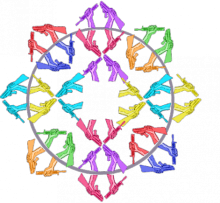Nonviolent Livelihood Struggle and Global Militarism: Links & Strategies
War Resisters' International is cooperating with Indian partner organisations for an international conference investigating the links between local nonviolent livelihood struggles and global militarism, including war profiteering.
This participatory conference will bring together campaigners from all over the world to analyse the role of states and multinational corporations in depriving local communities of their sources of livelihood, and learning from the experience of nonviolent resistance at various levels - from the community to the global - and at various phases, from preventing displacement to planning for return.
This conference relates two phenomena usually considered separately: community struggles defending the livelihood of local populations, and global militarism and in particular the role of transnational arms producers and war profiteers. This link is of particular interest to War Resisters' International, firstly because WRI is a global network existing not only to resist war, but to promote nonviolent action - especially nonviolent action to remove the causes of war or against the misuse of resources in preparing for war. Secondly, WRI – in the spirit of Gandhi and many of those who believe in 'thinking globally but acting locally' – has emphasised the need to strengthen local community while transcending the boundaries erected by power structures.
The theme of militarism arises because in many parts of the world militarism is a threat to local communities, and yet this is rarely acknowledged. Looking at a major world problem such as displacement, in many instances, it is intimately linked with war or militarism - people are displaced by war itself and they are displaced as part of a resource-grabbing that fuels conflict and often leads to war. They are also displaced by particular military development – bases, weapons testing or training grounds – as well as the large industrial projects that are often linked to strengthening the technological and military infrastructure of a particular country. Those displaced themselves become vulnerable to forced recruitment into various armed bands, official or unofficial.
The theme of nonviolent struggle is central because this has proved an effective means of counteracting threats to community. Moreover, the conference will be taking place in Gujarat, the base of the inspiring local and global campaign against the Narmada dam. The Narmada campaign shows that the response to development-induced displaced has to be multi-level: a struggle that includes fighting court battles, but is based in mobilising local communities threatened by the development and awakening the active concern of those further afield who stand to 'benefit'. Narmada is the best known of a range of livelihood struggles in India, and participants in these - from both rural and urban areas, including researchers aligned with the people and campaigners - will be invited to the conference.
Programme
There remains space for participants at the conference to propose new workshops. From the opening session introductions to the "newspaper theatre" presentation (to be prepared each day by various participants drawing on Agosto Boal's "Theatre of the Oppressed), an effort will be made to make the conference interactive and participatory.
Day 1: Welcome: Opening Session on the conference theme
This will feature one of India's foremost critics of capitalist globalisation and its attendant militarism - Arundhati Roy hopes to attend
Day 2: Displacement, 'Development' and Militarism
Day 2: Displacement, 'Development' and Militarism
Morning session: Mining - threat to community, fuel for war
Speaker: From a community struggle in Africa
Workshops:
- Aluminium mining in Orissa, India (following up morning session)
- Colombia: rural – urban support links in resisting war related displacement
- Arms trade the connections with mining and displacement
- Displacement and indigenous communities
- Military bases and displacement - Ecuador, Germany and S. Korea
- Displacement and minorities, eg Dalits
- Violence against Regional Identities (Jammu & Kashmir, North East of India.)
Day 3: Nonviolent resistance from local communities
Morning session: Nonviolent struggles for land
Speaker: Maguiorina Balbuena -Via Campesina Paraguay
Workshops:
- Venezuela: Indigenous community resisting the coal mines
- India – the struggle for land rights
- Ecuador and the struggle against war profiteering in the Amazons
- Mozda collective – “troublemakers unite”
- Constructive work and sustainable living as nonviolent resistance
- Another development vs. overdevelopment
Day 4: Forming transnational alliances
Morning session
Speaker: Medha Patkar of the Narmada Bachao Andolan on Building Transnational Alliances
Workshops:
- Transnational campaigning against war profiteering – making links with the arms trade movement (ENAAT) and the local communities
- The role of nonviolent accompaniment in supporting the return of displaced communities (PBI Colombia, Nonviolent Peaceforce Sri Lanka)
- Nationalism - Various identities, parochialism
- Industrialisation, Displacement & Violence
- India as a nuclear military power and war profiteer – what happens when the exploited becomes the exploiter?
Closing plenary
WRI's Chair, Howard Clark
Local host Anand Mazgaonkar,
Plus a number of reflectors from the participants
As a final participatory activity, Narayan Desai will write an appropriate text connected to the topic of the conference for a Garba (Gujarati folk dance) that is easy to learn and where everybody can join in.
More information at http://wri-irg.org/india2010
